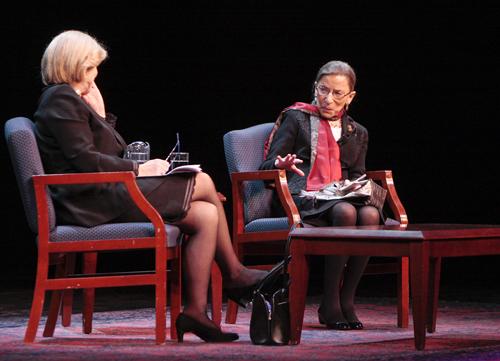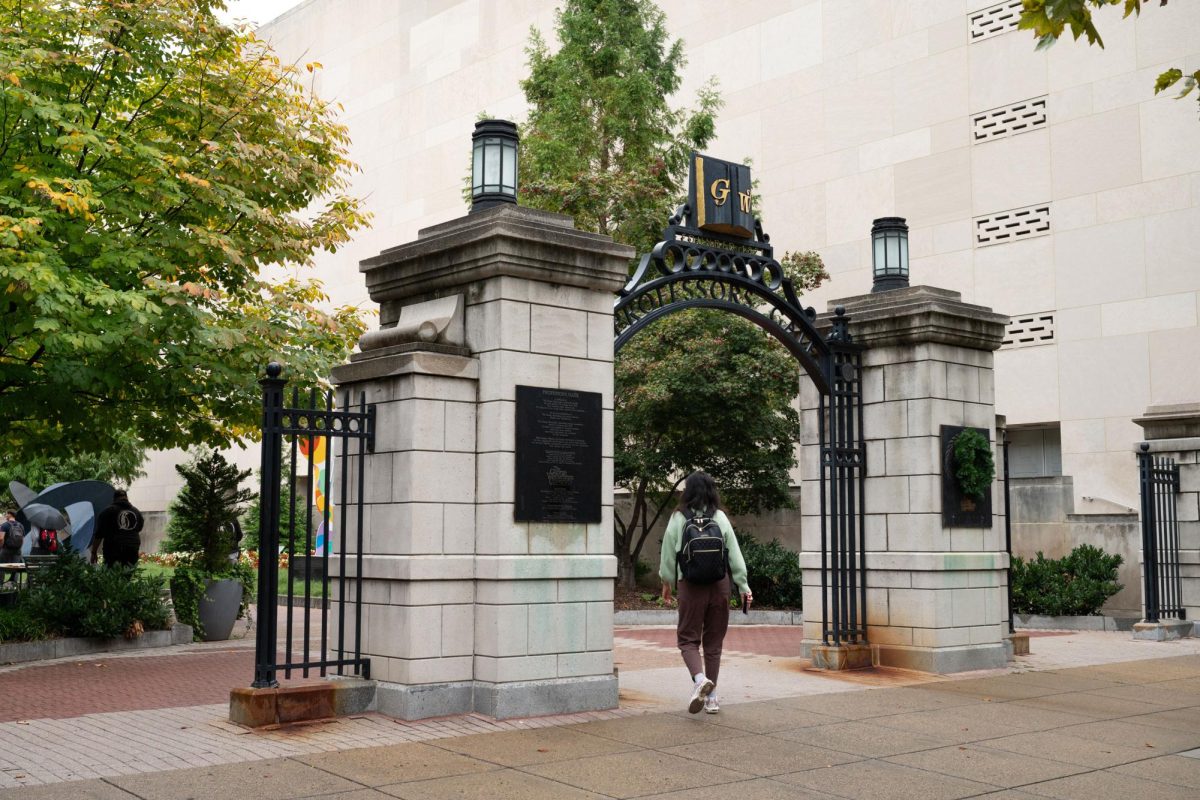
Americans should not expect a case examining the constitutionality of the health care law to be fast-tracked to the Supreme Court, Justice Ruth Bader Ginsburg said in Lisner Auditorium Thursday night.
Ginsburg, speaking with NPR’s legal correspondent Nina Totenberg, said any legal challenges to the law will have to work themselves up to the nation’s highest court through “the ordinary route.”
The issue has received national attention in the past week since a district court in Florida ruled the law unconstitutional Monday, leaving many speculating that a Supreme Court ruling might be expedited.
“The court itself is a reactive institution,” Ginsburg said. “We don’t decide ‘we better get this or that case sooner rather than later.’”
While certain cases, including the Pentagon Papers, have at times received quick Supreme Court review, Ginsburg said the court benefits from reading opinions from lower courts when it decides whether hear an appeal.
“We have a range of views before us and can make a better informed decision,” Ginsburg said.
Speaking in front of a packed auditorium, the 77-year-old Ginsburg sat primly in her chair and spoke about the historic number of female justices now sitting on the high court and about her famous friendship with fellow justice Antonin Scalia, with whom she frequently differs ideologically.
Referring to the conservative Scalia as Ginsburg’s “old sparring partner,” Totenberg asked Ginsburg what she “likes so much” about her colleague.
“He makes me smile, sometimes even laugh. You know he’s a very amusing fella,” Ginsburg said. “He’s very smart, he’s a damn good writer—he cares about the way you say it.”
Totenberg, who has covered the Supreme Court since the 1970s, said she was struck when she walked into the court at the beginning of the current term and for the first time saw three women sitting on the bench.
“Nina, I had the same impression as you,” Ginsburg said. “Now we are all over the bench.”
Ginsburg, the court’s second female justice, said that unlike when she and former Justice Sandra Day O’Connor were first on the bench, lawyers today never misspeak and confuse her for one of her female colleagues.
“Invariably one lawyer or another would say ‘Justice O’Connor’ and Sandra would sometimes say, ‘I’m Justice O’Connor, she’s Justice Ginsburg,’” she said. “Now they know women are there to stay and we are our own person. It’s not ‘the woman’ on the court, it’s justices who happen to be women.”




